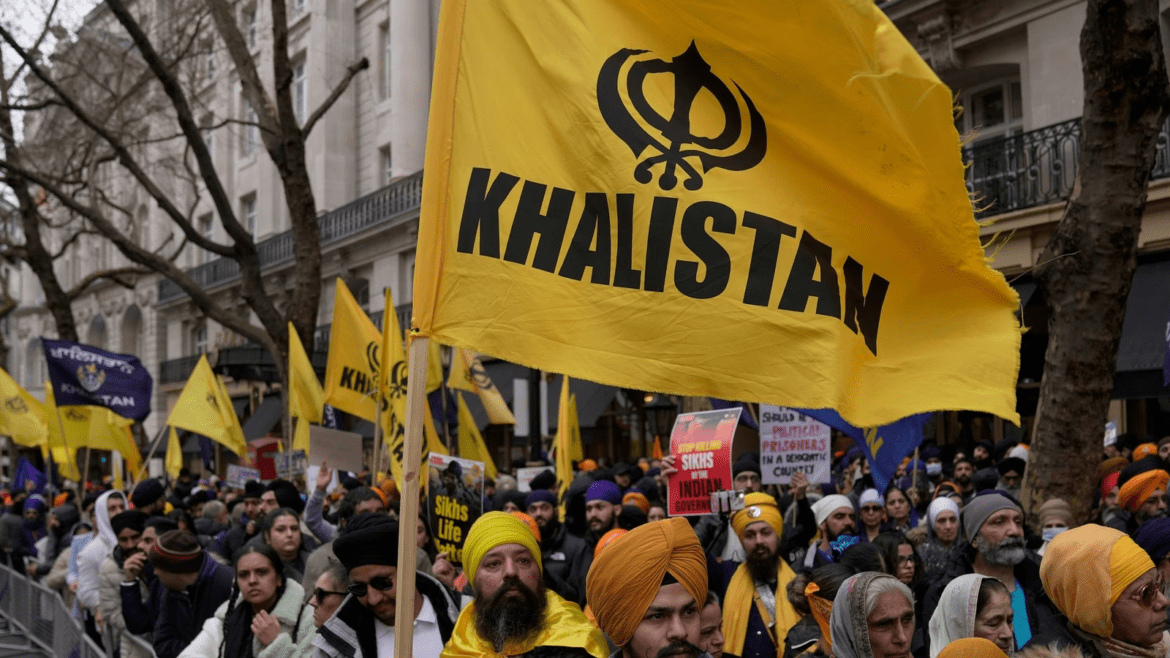AI Generated Summary
- Aware of the vigorous and assertive tendencies demonstrated by the Sikh community during their historical struggles for political power in the 18th century CE, as well as their role in the British armies, the Gurdwara reform movement, and their participation in the fight for independence from the British, some factions of India had sought to manage and temper this dynamism through various strategies.
- The demand for Khalistan was raised mainly in 1970’s by one Jagjit Singh Chauhan, a former Punjab Minister and he even declared a government of Khalistan in exile with himself as its self-styled President.
- These organizations have been successful in providing the political parties in India with sufficient ground for gaining the support of Hindu-minded voters by portraying the Hindu community at a receiving end vis-à-vis the Khalistani protagonists.
The concept of ‘Khalistan’ is a misnomer, a figment of imagination, rather an aberration. The idea of ‘Khalistan’ gained currency only after the partition of India in 1947 CE after British rule came to an end in this region.
Sikhs believe the term ‘khalis‘ has been bestowed upon them by Guru Gobind Singh, the tenth and the last in the lineage beginning with Guru Nanak. ‘Khalis’ means pure, a land where there is no corruption and equality of women and all castes/classes. Khalis or Khalsa is a place where evil doesn’t exist. Ironically, the Khalistan movement derives its name from the term ‘khalis‘.
Sikhs form a sizable religious group of nearly 30 million people forming a majority community in the state of Punjab in India and having members inhabiting different parts of India and countries abroad. The Sikhs are well known for their perseverance, entrepreneurship, fortitude and humanitarianism. They are also notorious for their inherent aggressiveness and occasional fanatic postures. ‘Khalistan’ is, obviously, to be viewed as a theocratic state to be carved out of India.
It must be noted here that none of the Gurus had ever aimed at creating any separate country for their followers. The Gurus were, actually, humanist leaders propagating harmony, welfare and peace for mankind viewing the whole of the world as one nation.
Nor has any such demand been incorporated in the Gurbani Granth revered by the Sikhs not only as their sacred scripture but also as their perennial Guru. ‘Khalistan’ has never been a frontal demand on the part of the Sikhs at large. ‘Khalistan’ is, actually, a preposterous notion and not a practically viable preposition: no clear plans, no area ear-marked, no clarity regarding the form of government, no strategy for pursuing the struggle, no leadership, no resources, no diplomatic foreign support. The result is all confusion leading to nowhere.
Aware of the vigorous and assertive tendencies demonstrated by the Sikh community during their historical struggles for political power in the 18th century CE, as well as their role in the British armies, the Gurdwara reform movement, and their participation in the fight for independence from the British, some factions of India had sought to manage and temper this dynamism through various strategies. This involved portraying the Sikh community as violent, intolerant, fanatical, extremist, and separatist, in an attempt to disrupt their unity. To achieve this, the idea of Khalistan was effectively used as bait to ensnare the more radical elements within the Sikh community.
The demand for Khalistan was raised mainly in 1970’s by one Jagjit Singh Chauhan, a former Punjab Minister and he even declared a government of Khalistan in exile with himself as its self-styled President. When Jarnail Singh Bhindranwale was promoted as a Sikh hardliner in the early 80’s of the last century, he was not vociferous enough to raise a separatist demand categorically. In view of this, an extremist outfit was established under the name of Dal Khalsa, but none appeared on the scene to take up cudgels for making any worthwhile achievement on this front. Unluckily, after Operation Blue Star at Amritsar in June 1984, many militant organizations sprang up spontaneously within the Sikh sect with the demand for a separate state but their movement came to be crushed with an iron hand, rather through state repression. Seeming normalcy in the state was restored by the mid of the last decade of the twentieth century CE.
Nonetheless, the fringe elements among the Sikhs in India and abroad have been engaged in keeping the issue alive mainly through propaganda. Certain organizations and entities being run from abroad, and some even from Punjab are the main bodies active on this front. These organizations have been successful in providing the political parties in India with sufficient ground for gaining the support of Hindu-minded voters by portraying the Hindu community at a receiving end vis-à-vis the Khalistani protagonists. Efforts are on to explore new avenues for this purpose. Amritpal Singh phenomenon has been the latest example, emerging in the backdrop of ensuing general elections in India due in a year or so.
The opinions expressed in this article are those of the author. They do not purport to reflect the opinions or views of Khalsa Vox or its members.




